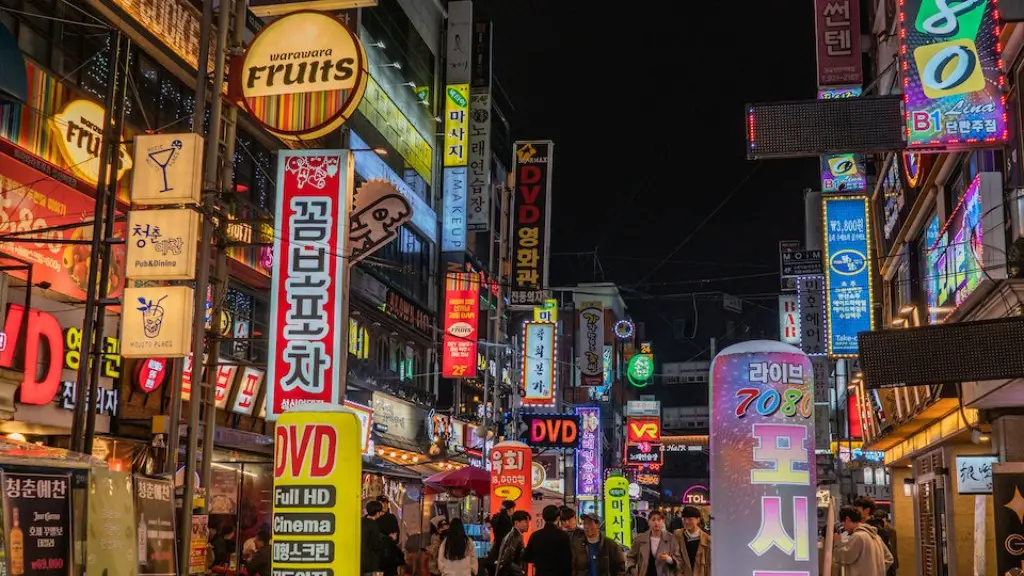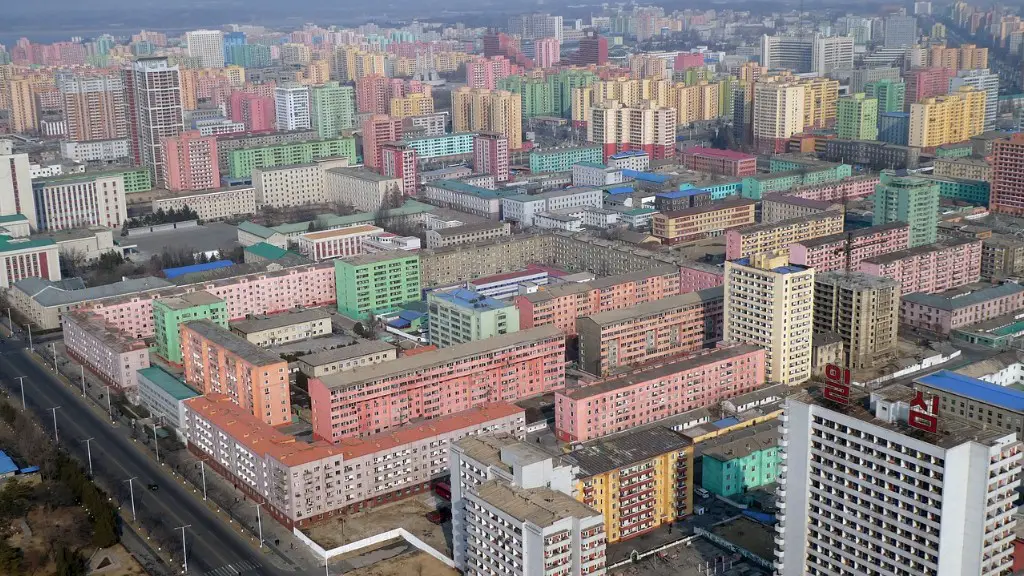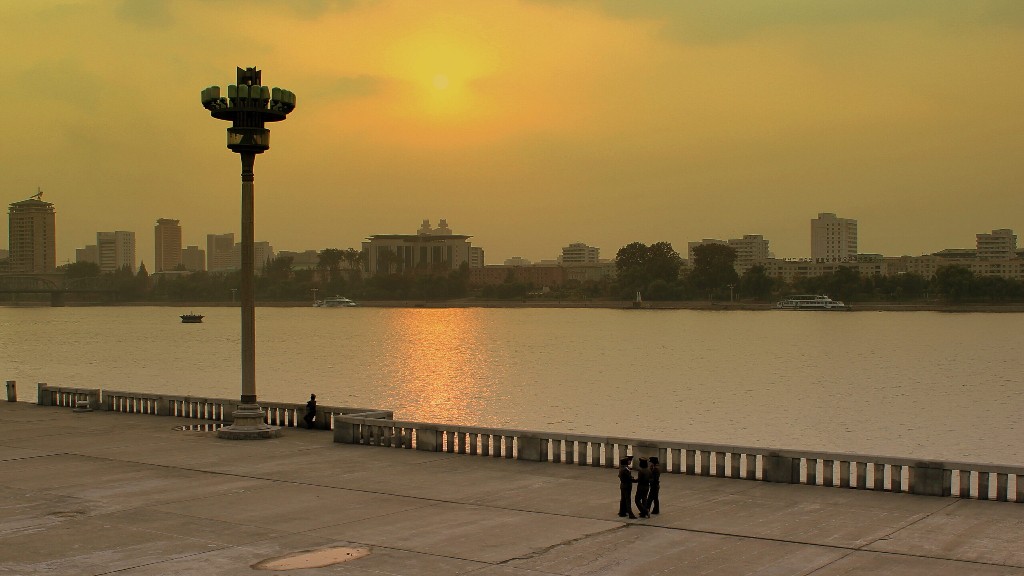The mystery of North Korea has always perplexed the international community. Though the small nation has cast an even larger shadow on the world stage, its motivations and inner workings have long been difficult to discern. That the nation remains so shrouded in secrecy, even as global citizens debate its motives, has made it both a source of fascination and fear. But why is North Korea so weird?
It’s worth noting that North Korea’s closed-off approach to the world is rooted in politics, not culture. The nation is essentially a hereditary dictatorship, with the ruling Kim family holding onto power since 1948. As result, the primitive communist nation maintains rigid control over its citizens, essentially forbidding any kind of contact with the outside world. The nation’s leadership has also used the country’s relative isolation as a way to promote its distinct national identity, providing an “us vs. them” mentality that emphasizes North Korea’s cultural autonomy. This approach has helped the nation to push its own narrative and maintain a sense of self-reliance that runs deep in North Korean culture.
The North Korean government also exercises an oppressive censorship system, severely limiting any kind of access to potential outside information. That the citizens of North Korea have a fairly limited scope of the world, along with strict state policing and indoctrination from an early age, could explain why the nation continues to relegate itself in some respects. That North Koreans are largely unburdened by Western influences, including capitalism and global economic trends, could be a large part of why some citizens remain loyal to their government, despite overwhelming evidence of its brutality.
Additionally, the nature of the North Korean government, and its underlying philosophy, can also shed light on its strangeness in more concrete terms. While the citizens may be largely shut off from the broader world, the nation’s leadership has an alarming pedigree for provocation. In recent years, North Korea has openly challenged the interests of the United States, China, and the United Nations itself with saber-rattling and nuclear tests. This approach, leading some to label the nation as “rogue,” goes against the traditional grain of international diplomacy, suggesting that the North Korean government may see itself as above the law.
However, it’s also possible that North Korea’s strange behavior could simply be a way to survive. The complete absence of foreign investment and tourism, due to military threats and barriers to global communication, has made the nation largely dependent on its own resources. This has left the nation’s leadership with little wiggle room when it comes to supplying basic needs, leading to a situation in which outward displays of force may simply be a way to distract from internal crises. Nevertheless, this could be interpreted as yet another example of North Korean cunning and evasion in the face of immense pressure from the international community, furthering their image as a hostile rogue state.
The History Behind North Korea
The roots of North Korea’s strangeness can be traced back to its geopolitical legacy. The nation was founded in 1948, following the collapse of the Japanese Empire, which effectively split the Korean peninsula into two distinct regions. North Korea, backed by the Soviet Union, adopted a strictly communist ideology, while South Korea, supported by the U.S., sought to maintain a more capitalist and democratic system. This divide was further exacerbated by the outbreak of the Korean War in 1950, a violent conflict that lasted until 1953 and provided yet another potent example of the propaganda strategies at play in the region.
During the post-war years, North Korea actively pursued a policy of economic isolation, nationalizing its industries, effectively shutting off its borders, and heavily discouraging any substantial contact with the outside world. This allowed the nation to pursue its own agenda, with the ruling Kim family taking firm control over the nation’s leadership. This also allowed the nation to continue its communist doctrines unimpeded, a hold that remains despite potential reforms further south of the peninsula.
North Korea’s Political Ideology
It’s important to note that North Korea subscribes to its own form of Marxist-Leninist ideology, which is distinct from both the Soviet Union’s brand of Communism, and China’s brand of Socialism. North Korean leaders have embraced the idea of self-reliance, encouraging citizens to rely on their own resources and strive for autonomy, rather than be reliant on outside nations. Consequently, North Korea tends to frame its hostilities as a means of protecting its own autonomy and independence, suggesting their motivations are born out of a desire to remain separate, not just challenge the status quo.
This ideology of self-reliance has been sustained through a variety of means, including harsh punishments under the nation’s strict legal systems and the use of national propaganda to stir feelings of patriotism amongst citizens. This has enabled North Korea to maintain a tight-knit sense of national identity, while also sustaining an infrastructure of surveillance to prevent any loss of loyalty or meddling from outside powers. This is also why, even in the face of news reports of famine, poverty, and human rights violations, North Korea retains its own kind of anti-globalist stance, a sentiment which further hints at why the nation views itself as so distinct from its neighbours.
The Negative Perception Towards North Korea
It’s important to note that North Korea’s aggressive stance has received a substantial amount of international condemnation. North Korean leaders have faced a variety of sanctions, both from the U.N. and other nations, for their continued acts of confrontation. This has had a number of effects, such as limiting exports, increasing civil unrest, and further separating North Korea from the rest of the world.
However, despite the widespread negative perception of North Korea on the global stage, it’s worth noting that its citizens are far more nuanced than the caricature presented in the news. North Koreans, while certainly subject to propaganda and indoctrination, largely demonstrate a fierce sense of national pride, often viewing themselves as the custodians of a unique legacy. This suggests that the nation’s strangeness is at least, in part, a product of perception, informed by a lack of internal understanding of the nation, rather than any genuine insight into the inner workings of North Korea.
Relations With the West
Though the North Korean government has made its share of verbal threats, their rhetoric is largely defensively motivated. North Korea, for instance, has expressed long-standing fears over an invasion from the United States, who, as a result, have continued to send warships and military personnel to patrol the region. This has had the side-effect of increasing tensions between the two nations, but it’s also likely motivated out of a genuine sense of paranoia from the North Korean government.
More recently, North Korea has expressed an interest in dialoguing with the United States in order to create a more peaceful relationship, while still maintaining its stance of autonomy. While dialogues and summits between the two nations have been largely inconclusive, and even moreso with the change in American administrations, there’s a possibility that positive diplomatic relations may soon be within reach.
Conclusion About the North Korean System
Ultimately, North Korea’s strangeness likely goes beyond its eccentric actions, and into its foundation as an isolated and oppressive regime. While North Korea is certainly a nation steeped in history and. ideology, it’s important to remember that its citizens are still people and remain largely misunderstood. To that end, while we may never entirely understand why North Korea is so weird, seeking to untangle and challenge our own preconceptions may be the best way to start.



